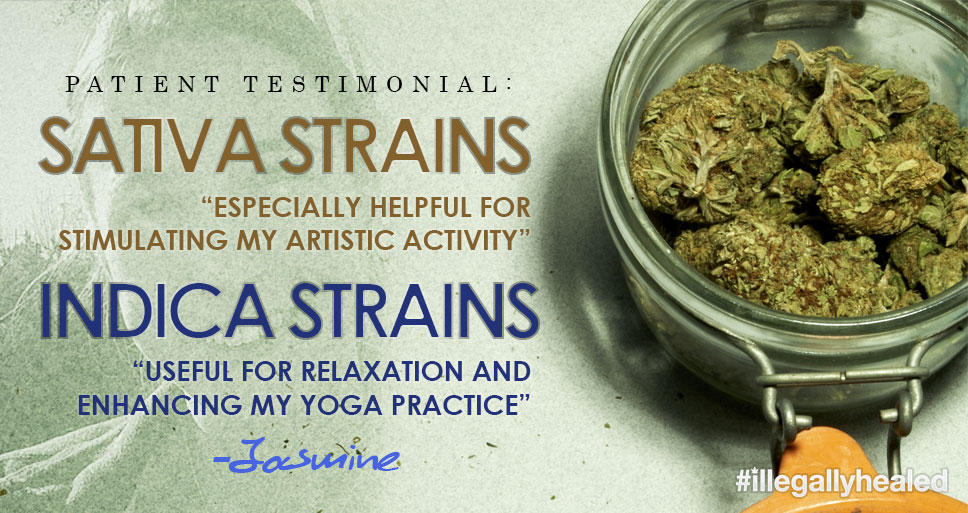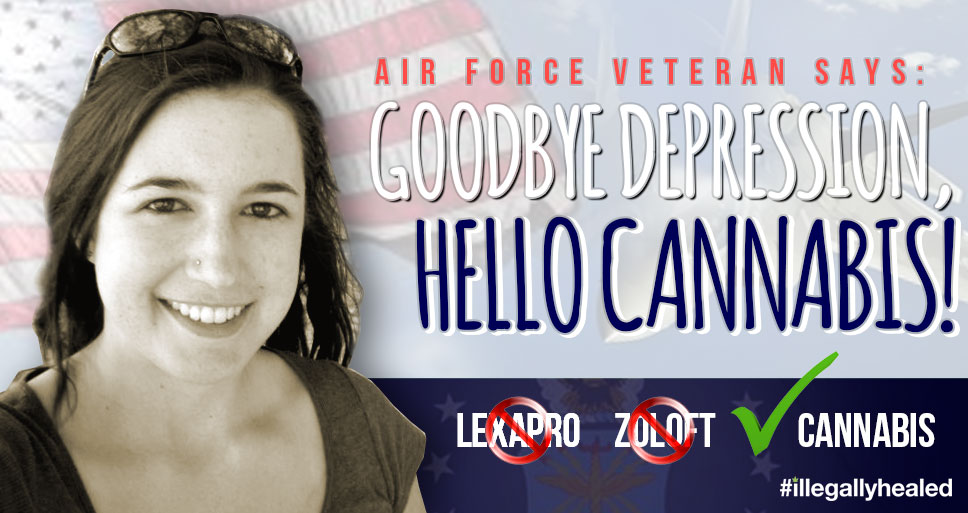Jasmine Miller has endured trauma her entire life. Her difficult experiences during her upbringing led to using psychiatric medications for many years, starting at age 17. After graduating high school and determining that college was not the right fit, Jasmine joined the Air Force at age 19.
For six years, the Air Force assigned Jasmine to various locations, including in Maryland and New Mexico. Throughout this time, she was on various pharmaceutical medications for depression and anxiety like Lexapro and Zoloft. However, pharmaceuticals did little to address the underlying causes of Jasmine’s issues.
Discovering Cannabis

In 2013, Jasmine joined New Mexico’s medicinal cannabis program.
In her teenage years Jasmine had tried cannabis once, but it was of low-quality and did not do anything for her.
In 2013, Jasmine’s husband at the time became a patient in New Mexico’s medicinal cannabis program. This inspired Jasmine join the program as well to give cannabis another shot. She found that using high-quality cannabis was very effective for post-traumatic stress, depression, and anxiety symptoms.

Sativa: Creative vs. Indica: Relaxing
Jasmine now consumes about two grams a week, and chooses sativa or indica strains depending on her unique needs. Sativa strains are especially helpful for stimulating artistic activity, and indica strains are more useful for relaxation and enhancing Jasmine’s yoga practice.
Al Byrne
“The Veterans Health Admin. has already approved the medicinal use of cannabis for all Vets living in legal states for PTSD and other Vet wounds. It’s irresponsible to deny Vets adequate treatment because of where they live.”
– Al Byrne, Lcdr., SC, USN, ret. CEO Veterans For Compassionate Care LLC.
In addition to using cannabis medicinally, Jasmine believes in the spiritual utility of the plant as well. Its ability to improve the yoga and meditation experience has significantly benefited Jasmine’s overall health.
“Anything that you do, make sure you are doing it for the right reasons. Don’t neglect your demons. Treat the plant with respect, and it will treat you with respect,” says Jasmine.
Respect is critical, as the overconsumption of cannabis products can sometimes lead to negative effects. Furthermore, it is important to respect the medicine by treating your body well in general. Jasmine eats organic food and is active, which has helped strengthen her endocannabinoid system and thus improved the efficacy of cannabis.
Despite the lack of clinical trials, Dr. Sue Sisley believes cannabis could offer a more effective treatment for sufferers of PTSD. With the Multidisciplinary Association for Psychedelic Studies, Dr. Sisley was awarded a research grant to study the safety and efficacy of marijuana as a treatment for post-traumatic stress disorder.
Dr. Sue Sisley Talks About PTSD
Have you had success using cannabis for PTSD? Click here to send your story to our editorial staff. We may use your story in a future article. Your experience could directly influence the healing of another person.
*Veteran must be in a legal medical cannabis state and obtain recommendation from civilian physician. VA physicians are not allowed to recommend cannabis.


